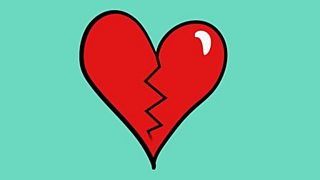Talking to your children about drugs: Six tips to keep them safe

More than a third of 15-year-olds in the UK reported they had taken drugs, according to an NHS Survey carried out in 2018. But as a parent, how should you talk to your children about drugs, and what can you do to help keep them safe?
Fiona Spargo-Mabbs lost her son Dan in 2014 when he was just 16, after he went to an illegal rave and took a lethal dose of the drug MDMA. Since then, she’s been supporting young people to make safe choices about drugs and alcohol through the Daniel Spargo-Mabbs Foundation, and now she’s written a book to help parents and carers. She spoke to Woman’s Hour about I Wish I’d Known: Young People, Drugs and Decisions, and shared some of her best advice…
1. Be aware
“First of all, just be aware,” says Fiona. “Don’t think that it’s just out there for ‘kids like that’ and ‘families like that’ and ‘communities like that’. Daniel wasn’t somebody who would have been on anybody’s radar to come to harm from drugs. When that happened it made us realise, if something like this can happen to somebody like Dan then it’s just so easy for anyone to get caught up in something that has the potential to go badly wrong.
"It’s everywhere and young people are being exposed to it, including [on] social media. Be aware as a parent that in that moment of decision, their decision might be ‘yes’. And it might be yes under all sorts of pressures and all sorts of dynamics going on that you would never normally think that they would be subject to.”
2. Have the information yourself
“Get up to date, accurate information and keep yourself informed, knowing your child will almost certainly be making a decision about drugs at some point in their teens.
“There are lots of useful resources that you can go to as a parent. You can use our website, , because we’ve got lots of resources there. And there are other places: and .”
3. Have conversations at home
“Get information, but really importantly, keep those conversations going at home. Do anything that you can to support and strengthen your connectedness and communication with your child. That can get more difficult as they get into their teens.
“So, making and taking opportunities to have conversations. Making that conversation a comfortable conversation that you can both come back to as and when either of you need to. And making sure that you don’t do anything to shut that down, which is very easy to do as a parent. It’s easy to panic. It’s easy to lecture. It needs to be an ongoing conversation, because it’s an ongoing risk for your children.”

4. Don't try to instil fear
“It’s kind of counter-intuitive. You think, ‘if we just tell them something really shocking then they won’t want to do it.’ In that moment of decision for a teenager, they might know that it’s incredibly risky, but they’ve got that social risk of falling out with their friends.
“There has been a lot of research done into what works and what doesn’t work in drugs education and shock tactics are something that doesn’t work. They will know people who are taking stuff and are not dropping dead. So it’s unrealistic.”
5. Build resilience
“Help your child understand why decision-making can be difficult in their adolescence, and help them develop strategies to manage risk safely. Navigating risk in your teenage years is just the hardest time of your life. When some of the risks you’re presented with are illegal substances that are inherently risky because of the nature of the way that they’re made and produced and supplied, it’s a difficult landscape for teenagers.
“There are all sorts of critical changes going on in their brain that means thinking things through, managing risk, managing your emotions and impulses is very hard. Your friends can play an enormous role in the decisions you make. It’s easy to say, ‘it’s avoidable’ - but the world of teenagers is very different from the world of their parents. You don’t know what you don’t know as a parent.”
6. Get help if you or your child need it
“Start with your GP. Find your local young person’s treatment service. Find support through your community or online. Don’t let fear or stigma be a barrier to reaching out.”
Listen to the full interview with Fiona on Â鶹ԼÅÄ Sounds to hear more, where you can also listen to any other episodes you may have missed. Follow us and join the conversation on or @bbcwomanshour.
Visit the Â鶹ԼÅÄ Action Line website for more support.




